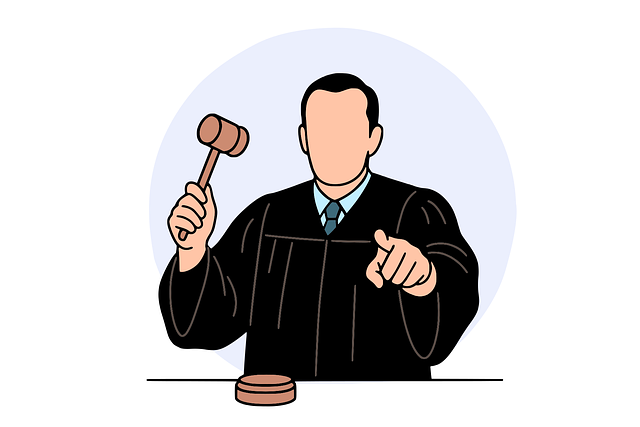Legal professionals rely on accurate and efficient law office equipment like advanced digital recorders and specialized software to capture and document information, enhancing productivity and accuracy. When equipping a law office, prioritize technology with noise-canceling tech, automatic punctuation/spell check, and high-quality microphones. Tools like Dragon Professional Individual and Sonix, known for accuracy and intuitiveness, streamline transcription processes, save time, and reduce errors, making them essential law office equipment investments. Best practices include ensuring compatibility with case management systems, staff training, and choosing cloud-based software for collaboration. Regular updates to speech recognition tech further enhance accuracy and user experience.
Selecting the right dictation equipment is a strategic move for legal professionals, aiming to streamline workflows and enhance efficiency. In today’s digital age, efficient dictation software has become an indispensable tool in law offices, offering a competitive edge. This article delves into the intricacies of understanding dictation equipment from a legal perspective, highlighting key features to consider. We explore top-rated tools, their applications, and best practices for implementation, empowering legal teams to make informed decisions regarding their law office equipment.
- Understanding Dictation Equipment: A Legal Professional's Perspective
- Features to Consider for Effective Legal Dictation
- Top Dictation Tools and Their Applications in Law Offices
- Implementing and Optimizing Dictation Software: Best Practices
Understanding Dictation Equipment: A Legal Professional's Perspective
Legal professionals often require accurate and efficient methods for capturing and documenting information, making dictation equipment an essential component of their workflow. In the fast-paced environment of law offices, where time is money, and precision is key, the right dictation technology can streamline legal processes. This equipment enables lawyers and paralegals to capture detailed notes, witness statements, contracts, and legal arguments with remarkable speed and accuracy.
Dictation devices, ranging from advanced digital recorders to specialized software, offer a range of features tailored to meet the unique demands of legal practice. These tools often include voice recognition capabilities, allowing users to convert spoken words into text instantly. This not only saves time but also ensures a more comprehensive and error-free documentation process. With the ability to easily edit and organize digital dictations, legal professionals can focus on providing high-quality service while leveraging technology to enhance productivity and accuracy in their day-to-day operations.
Features to Consider for Effective Legal Dictation
When selecting dictation equipment for a law office, it’s crucial to consider features that enhance efficiency and accuracy. Legal professionals often deal with detailed and sensitive information, so equipment should support clear audio capture and precise transcription. Look for devices equipped with noise-canceling technology to minimize background disturbances, ensuring every word is accurately recorded.
Additionally, consider tools offering advanced editing capabilities, such as automatic punctuation, spell check, and the ability to easily insert or delete segments. These features streamline the editing process, saving time and reducing errors. High-quality microphones are also essential for capturing speech with clarity, even in quiet settings, thereby optimizing the overall dictation experience.
Top Dictation Tools and Their Applications in Law Offices
In today’s digital age, efficient transcription methods are a cornerstone for law offices seeking to streamline their operations and enhance productivity. Top dictation tools, like Dragon Professional Individual and Sonix, have emerged as indispensable legal office equipment. Dragon, renowned for its accuracy and intuitive interface, allows lawyers to dictate legal documents, such as contracts and court briefs, with remarkable speed and precision. Its advanced speech recognition technology reduces the need for manual typing, saving valuable time and minimizing errors.
Sonix, another powerful dictation software, offers unique features like real-time transcription and collaborative editing. This makes it ideal for multi-attorney law firms where multiple lawyers can work on a single document simultaneously. Moreover, both tools integrate seamlessly with popular case management systems, ensuring smooth workflow transitions. Their applications in law offices extend beyond mere transcription, enabling professionals to focus more on legal strategy and client interactions, thereby boosting overall efficiency.
Implementing and Optimizing Dictation Software: Best Practices
Implementing dictation software in a law office can significantly enhance productivity and streamline legal document creation. When optimizing this technology, best practices include ensuring compatibility with existing case management systems for seamless document storage and retrieval. Additionally, training staff to use the software effectively is paramount; regular workshops or tutorials can keep everyone up-to-date with new features and ensure accurate dictation.
For optimal results, choose software that offers cloud-based options for easy file sharing and collaboration among team members. Integration capabilities with word processing programs allow for direct document generation from diktated content, saving time and reducing errors. Regularly updating the software to access the latest advancements in speech recognition technology is also advisable, as it can improve accuracy and overall user experience, making it an indispensable tool in any modern law office equipment arsenal.
Selecting the right dictation equipment is a strategic move for legal professionals, streamlining workflows and enhancing productivity. By understanding their unique needs and implementing top-tier tools like advanced speech recognition software, legal teams can optimize their work processes. This article has guided you through essential features to look for and best practices for implementation, empowering you to make an informed choice for your law office equipment.
